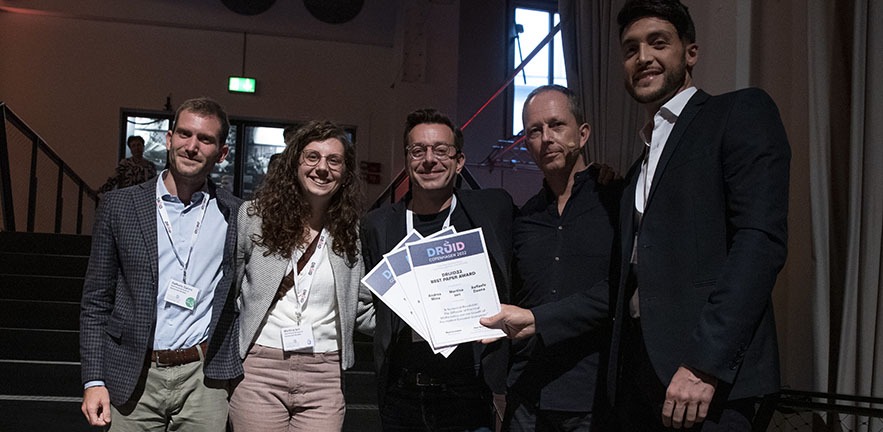A new, prestigious international award for a Centre for Business Research (CBR) researcher.
Andrea Mina (CBR Senior Research Fellow), with co-authors Raffaele Danna and Martina Iori, respectively Research Fellow and Assistant Professor at Sant’Anna School of Advanced Studies in Pisa, won the Best Paper Award of the DRUID 2022 Conference which recently concluded at Copenhagen Business School.
Their study “A numerical revolution: the diffusion of practical mathematics and the growth of pre-modern European economies” focuses on the role of knowledge transmission in history. It provides new and original evidence about the positive impact caused by the circulation of Hindu-Arabic numerals on economic growth in pre-modern Europe. The study builds on data about arithmetic manuals of the time, outlining how their diffusion in dedicated schools innovated commercial practices and transformed the economic systems of European cities.
The DRUID conference is considered one of the most prestigious global venues for studies on innovation and the dynamics of structural, institutional and geographic change, and attracts academics from around the world every year since 1995.
Paper abstract: The accumulation of knowledge and its application to a variety of human needs is a discontinuous process that involves innovation and change. While much has been written on major discontinuities associated, for instance, with the rise of new technologies during industrial revolutions, other phases of economic development are less well understood, even though they might bring into even sharper focus the mechanisms through which growth is generated by the systematic application of human knowledge to practical problems. In this paper, we investigate the transmission of new mathematical knowledge from the 13th to the end of the 16th century in Europe. Using an original dataset of over 1050 manuals of practical arithmetic, we produce new descriptive and quasi-experimental evidence on the economic importance of the European transition from Roman to Hindu-Arabic numerals (0, 1, 2, 3, 4, 5, 6, 7, 8, 9). This numerical revolution laid the foundations for the commercial revolution of the 13th century and the diffusion of knowledge through organised learning had positive and significant effects on the growth of pre-modern European economies.


